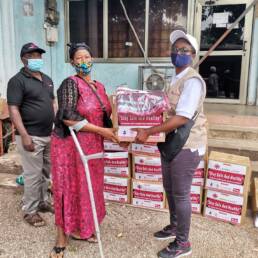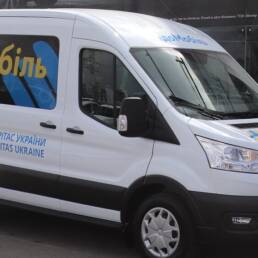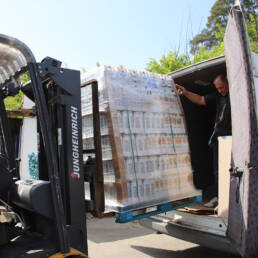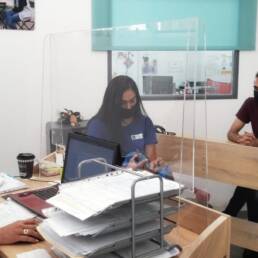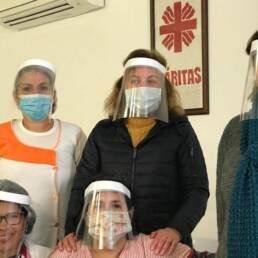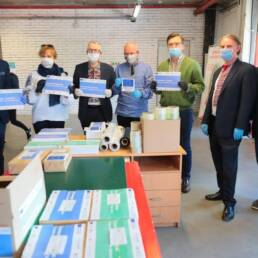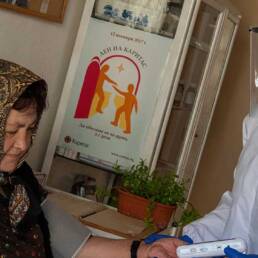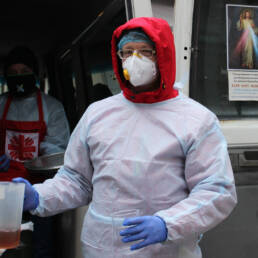Author
Anna Yakimovich
Deputy Director
Caritas Belarus
It has been over two years since the European Parliament adopted a resolution on the shrinking space for civil society, encouraging the EU to adopt guidelines on partnerships with Churches and faith-based organisations in cooperation for development. To this date, such guidelines have not been adopted by the EU.
To explore how to better foster integral human development by connecting the roles of faith-based organisations and policy-makers, Caritas Europa and COMECE organised a dialogue.
This meeting aimed at creating a space for an open, informal and joint discussion on the main challenges and opportunities of the partnership and to conceptualise potential guidelines.
Over 30 participants from the European Commission (DG DEVCO, DG NEAR, DG JUST) the European External Action Service (EEAS), the European Parliament, Churches and faith-based organisations engaged in the dialogue on 23 January.
All speakers recognised the added-value of faith-based actors and acknowledged that, as first and long-standing operational field actors, they provide basic social services and remain on the ground when many other actors leave.
Participants also emphasised key contributions that faith-based organisations provide by focusing on human dignity, i.e. faith brings a strong sense of hope and empowerment, and a sense of dignity and self-worth, and it can thus be a crucial basis for resilience in the face of disasters and help affected populations cope with trauma.
Another key contribution discussed in the meeting is the capacity of faith-based organisations to effectively empower local actors and enable bottom-up processes for social justice and decentralised decision-making, i.e. through their deep roots in local communities, local faith actors can meaningfully involve the marginalised and excluded in decisions that affect their lives.
The challenges
The debate also covered key challenges. Participants mentioned the need for donors, including EU Delegations, to engage in religious literacy and better understand the structure and role of different types of faith-based actors and the role of religion in the social and political contexts in which international development projects are implemented.
Perhaps most importantly, participants repeatedly expressed the need to build solid trust between donors and faith-based organisations, especially local faith actors and religious leaders.
Developing solutions
The discussions showed that all stakeholders have moved past the phase of acknowledging the key role of Churches and faith-based actors in the development field, and past the phase of identifying the obstacles to a more effective collaboration.
The main takeaway for Caritas Europa was precisely that we are still in the phase of developing solutions to enhance these collaborative efforts and to maximise their potential, which is why this meeting was so important.
Caritas hopes that this dialogue helps keep the momentum alive and that the proposed solutions to address some of these challenges, such as potential guidelines for this partnership, are further explored and hopefully concretised.


